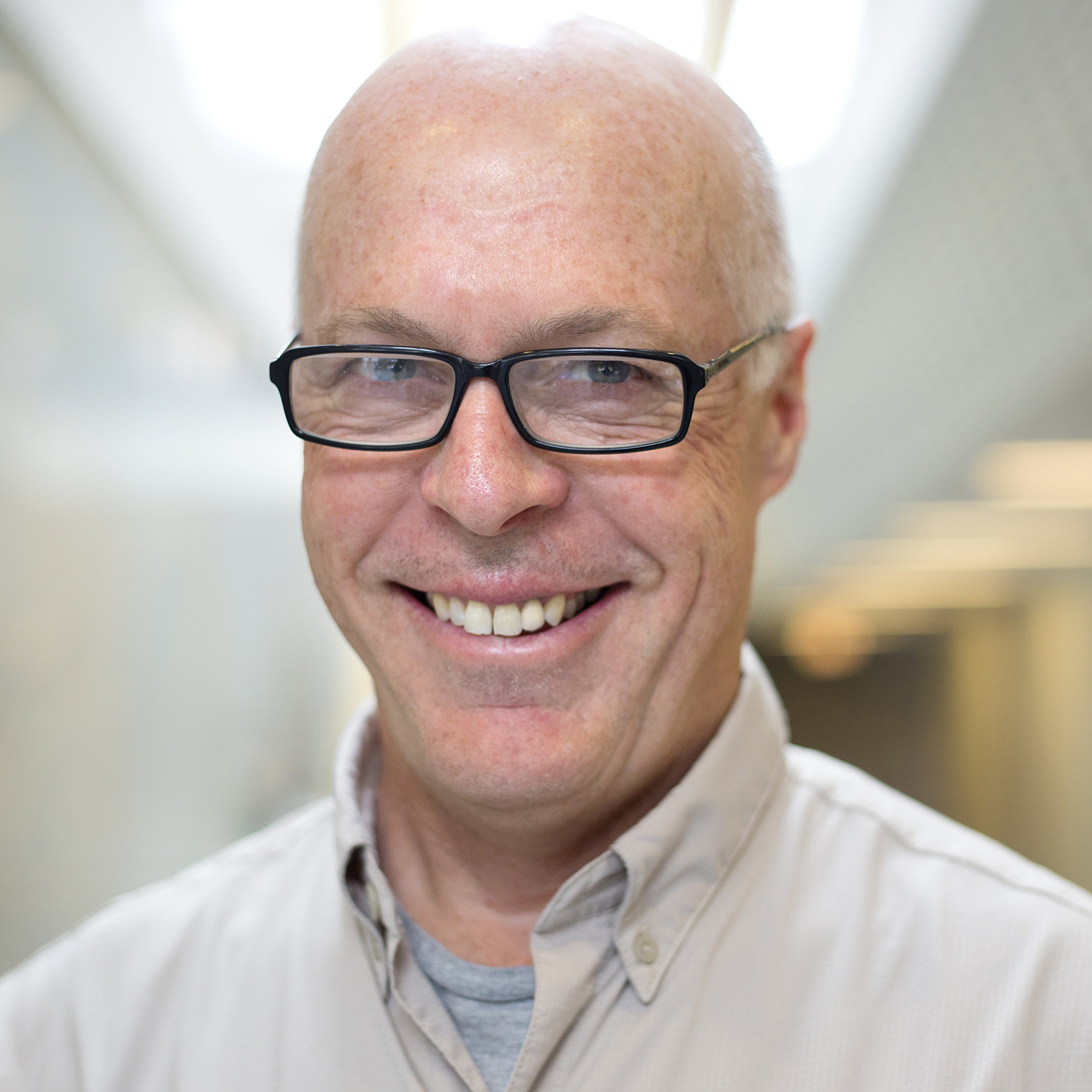Collegiate Lecturership recognizes commitment to innovative teaching
In recognition of his outstanding contributions to education, Dr. David Chesney has been named a 2018-2019 Toby Teorey Collegiate Lecturer.

 Enlarge
Enlarge
In recognition of his outstanding contributions to education, Dr. David Chesney has been named a 2018-2019 Toby Teorey Collegiate Lecturer. Chesney will retain this appointment throughout his affiliation at the University.
For many years, Chesney has encouraged his students to think in terms of social good when developing their software projects. Through his courses, students are able to learn the fundamentals of programming and software systems, while also seeing the social impact of computer science. His recent focus has been the development of assistive technologies to improve the lives of people with disabilities. For these efforts, Chesney previously earned the James T. Neubacher Award in 2018 and the Provost’s Teaching Innovation Prize in 2016.
Every fall semester, Chesney teaches the first-year student engineering course, Gaming for the Greater Good. In the first part of the course, students learn fundamental programming skills. In the second part, they create a computer game using their newly acquired programming skills. The game, however, must have some form of social relevance.
Chesney’s senior-level engineering class has been focused on developing more advanced assistive technologies for people with disabilities. In the past two years they’ve helped Brad Ebenhoeh, a senior in a multidisciplinary degree through LSA with a focus on technical writing, return to his studies at U-M.
At age 19, Ebenhoeh was forced to leave the university for a decade after suffering a brain hemorrhage that paralyzed the right side of his body, limited his vision, and led him to use a wheelchair. After rehabilitation, Ebenhoeh re-enrolled and returned to campus. While his cognitive abilities recovered, he still uses a wheelchair and is assisted by a caretaker. He has regained part of the vision in his left eye and a bit of the functionality of his left hand and foot.
As the focal point of Chesney’s class, his students have created software systems Ebenhoeh needs to help succeed in school. They developed a foot-pedal keyboard device that helps him take notes and send emails, and a backup camera device for his wheelchair.
Prior to that, Chesney’s students were required to take aim at enabling treatment for children with autism spectrum disorder by creating touch sensitive coloring books, which was featured at UM’s booth at South by Southwest in March, 2016.
Previously, his software engineering class was chosen as one of ten in North America to use IBM’s Watson technology to develop applications that address social needs. Students developed prototype apps and business plans to bring their ideas out to society.
During Fall semester 2013 through Winter semester 2014, his class developed assistive technologies for a young girl named Grace who has cerebral palsy. The students made a variety of systems. Some attempted to give Grace tools to draw, color and practice math. Others helped her answer questions or convey more information about what she needs, wants or likes, as well as giving Grace more general language tools.
In prior years, Chesney’s students developed a string of innovative technologies including a tablet-based system of messaging for individuals with fine motor control issues, a suite of video games for children with autism, and a variety of aids for communication and daily living for people with physical and cognitive impairments.
Chesney is one of three faculty to receive the recognition on the U-M Ann Arbor campus this year.
 MENU
MENU 
